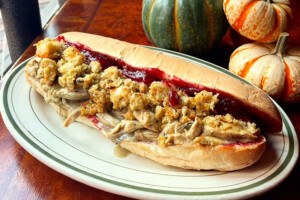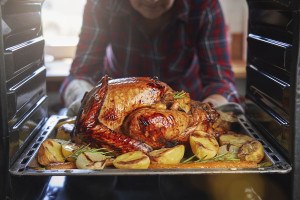Philly Restaurant Owners on How They’d Change the Industry in a Post-Coronavirus World
To operate a successful restaurant is to successfully hide its many flaws. “Smoke and mirrors” is what mega-chef/restaurateur and food TV personality Tom Colicchio called it in a recent interview with The Daily Beast. From the ever-widening cracks in the business model (with profit margins in the single digits and employees relying solely on tips to make a living wage, can we even call it a business?), to the cultural misconceptions (maybe we should have taken this industry more seriously all along?), to the daily obstacles of owning and running a kitchen and bar, making a restaurant look like it was functioning correctly was borderline sleight of hand.
Of course, keeping the industry’s dealings opaque is what made it such a successful magic trick all along. But it’s also what kept status quo. And once restaurants gained enough cultural equity, once they got their own media following (over the last two decades), both their strengths (as powerful engines of culture and history and community) and flaws (all the racism, sexism, wage theft, kitchen abuse, tipped wage issues) were amplified and exposed. And things began to change, slowly, for the better. Exposure is what pushed the restaurant industry into professionalism.
And when coronavirus came, push came to shove.
Now, according to a report from the National Restaurant Association, 81 percent of the workforce is unemployed. Hundreds of restaurants in Philadelphia (and the rest of the U.S.) are closed, and too many of them probably won’t ever reopen.
Personally, I always thought that for things to really, truly change in the restaurant world, this was the way it would have to happen. For real evolution, we’d have to restart the industry from scratch — from the inner-workings of the labor model to dining culture at large. Instead of hiding it all away, we’d have to come face-to-face with the true cost of doing restaurant business in the U.S. — and to do that, we’d have to burn it down and start over.
Right now, it seems like we were given that opportunity. For better or worse.
Here, seven Philly restaurant owners weigh in with one thing they would change about the restaurant industry, now that we’ve all had some time to think about it.
Going out to eat should be considered a luxury.
— Nick Elmi, chef-owner of Laurel, Royal Boucherie and ITV.
The system is quite obviously broken from top to bottom. Being able to provide healthcare would be great, but when we look into how to accomplish that as a small business it becomes cost prohibitive. There has been some great movement from Cooks Who Care in getting less expensive healthcare to smaller restaurants, but just as things were really starting to get interesting: COVID-19. Restaurants were once considered a luxury, and they were allowed to charge accordingly. The prices that we charge today at mid-range to high-end restaurants are the same prices (if not less) as what restaurants of the same caliber were charging in the early and ‘00s, even though the price of domestic meat, fish and produce has risen steadily, cutting into a restaurant’s profits. Owners are forced to make tough decisions about how and where to move money around. Compound that with the fact that there are hundreds of new restaurants each year, so, a smaller workforce, more restrictions, higher rents, and what seems like every year, a new tax.
A good restaurant used to make 15-20 percent a year, now we’re lucky if we eke out 5 percent. We do it to ourselves. We constantly undercut each other and try to expand. Because the profit is so small we need to do more volume, so we open more restaurants. So we hire more employees, sign new leases, take on more debt. Fail. Try again. Vicious cycle. Our failure rate is so high but we keep jumping in. All of your favorite restaurateurs have failed at some point, closed restaurants, laid off employees, walked away from debt. It’s pretty brutal, but we keep doing it.
And we keep doing it because we love bringing our community together, we value feeding people, we love being the place where people can convene to celebrate life moments together.
We need to rethink the labor model.
— Ellen Yin, owner of High Street Hospitality
I think that the labor model has to be looked at. For years, everyone has talked about the wage distribution between front and back of the house. Now is the time to hit the reset button and look at how money coming into the restaurant can be re-distributed so that everyone can make a living wage. Also, making sure restaurant workers have benefits like health insurance, a 401k , paid time off, etc. That is going to require a major shift in the business model.
We need to make food delivery more sustainable.
— Tyler Akin, owner of Stock and Res Ipsa Cafe
Food delivery has become ubiquitous in recent years and stands to become a dominant stream of revenue for restaurants in the context of COVID-19 related occupancy restrictions. We hear all the time that these third-party delivery platforms are not profitable — but why? They take 20 to 35 percent of transactions from restaurant partners and add fees that are paid by customers. Their employees are paid tipped minimum wage ($2.83/hour). So where does all the money go? The fees are too high and the relationships are not sustainable for restaurant partners to make this a central part of their business model.
Restaurants are a vehicle for entertainment, not just nourishment.
— Jon Nodler, co-owner of Cadence
This is a tough time for everyone, including restaurant guests who have been unable to dine out for a significant amount of time at this point. We are so grateful for the guests that have come through our doors (or up to our now-takeout window) over the years to experience what Cadence offers, especially considering the diversity of offerings that they could choose from in Philadelphia. Unfortunately there are always guests who consider going out to be strictly for nourishment, when in reality, restaurants provide a source of entertainment and escape (which is definitely being felt without them), in the same way a great concert, theater or movie does.
We should be more appreciative.
— Scott Schroeder, co-owner of Hungry Pigeon
I kinda just hope people appreciate restaurants a little more, myself included. I barely eat out because I spend so much time in a restaurant, I’m rarely in the mood to go to one. But I can honestly say that I miss them now. I picked up pho at Pho 75 the other day and I was standing there waiting for my order looking around thinking, I wish could sit down here and eat. Drink the crappy hot tea and slurp up some noodles.
All the diners coming in to my restaurant and complaining about the dumbest shit you’ve ever heard; the brunchers that didn’t have an elated experience from the $8 sandwich they bought so they go trash you on Yelp, those people should appreciate what they had. We’re not perfect but a small restaurant making everything from scratch with all local ingredients (including the English muffin for $8) and you go literally publicly bash them? Shut up, you privileged turd.
Most of these small restaurant have some hardworking person with a dream who wanted a restaurant more than anything in the world. They dumped their savings into it, or tricked an investor or bank to give them some money, and now some asshole goes in, doesn’t like it, and tries to hurt the business.
I don’t like every restaurant I go to but I don’t do much beyond talk about it with my wife and friends. I don’t expect everyone to love my restaurant either but can’t you just not come eat anymore? I think we could all appreciate what actually goes into this a little bit more.
I’ve been in the kitchen alone and have had so much time to think about all the good stuff that happened here for others. My friend Josh inviting his whole family in to surprise them and tell them about his wife being pregnant. The three weddings that took place here. All the fundraisers we did. People have written fucking books here! That stuff really keeps me going right now.
I’m not sure what restaurants are going to end up looking like after this but I hope people realize that as a whole, restaurants are amazing places that are so much fun to eat and drink in.
Maybe I just hope Yelp dies?
Our restaurant workers should be valued as essential.
— Ange Branca, co-owner of Sate Kampar
Everyone who works in the restaurant should be valued as essential. During these times, so many in the industry are still making food to distribute to those in need and those on the front line. For all their contributions to the community, many of these workers do not have any health benefits or legal status. It is only right to ensure that everyone of these people who are essential and have contributed to much should have all the benefits and legal status, similar to what other industries have for their international workers.
We need to make our restaurants more durable.
— Jon Adams, co-owner of Rival Bros.
The pandemic and consequent shutdowns have completely exposed the inefficiencies of the food and bev industry. It’s not like we didn’t know some were there, but that’s how it was from the start, it’s how we learned to operate a business. And, as we’re all trained, we just kept it moving. We knew its razor thin margins weren’t poised to handle much boat-rocking, let alone something catastrophic, but I think for those who can come out of this, we will be able to rebuild it a bit. I believe some current systems and standards are important and helped us create something that people want, something of high quality. Maybe this will force us to be more real about the true cost of things. Because we plan to offer more benefits to staff, even though we’re not a huge corporate entity with deep pockets and investors. But the reality is, there isn’t much to go around after all bills are paid. We are going to find ways to make it happen, so our industry isn’t so fragile moving forward.



